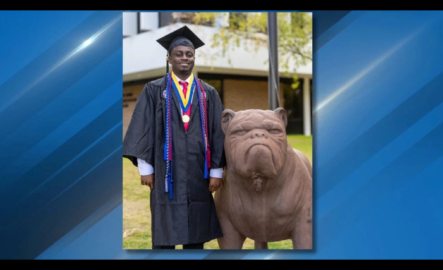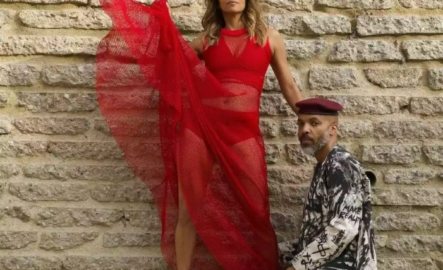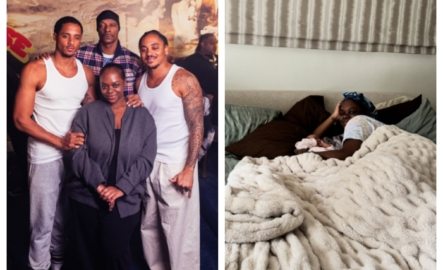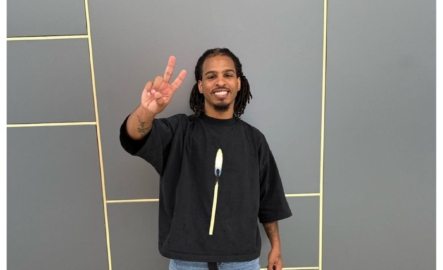
Help us create more content like this
Already a member? Sign in.
Sign up to our newsletter to get the latest updates and events from the leading Afro-Diaspora publisher straight to your inbox.
 December 21, 2022 at 05:00am
Top 5 African Countries to Invest In 2023
by Ben Ebuka
December 21, 2022 at 05:00am
Top 5 African Countries to Invest In 2023
by Ben Ebuka
 December 20, 2022 at 06:00am
Uncovering the invisible wealth of Afro-Brazilians: Four self made millionaires to know
by Bruno Goes
December 20, 2022 at 06:00am
Uncovering the invisible wealth of Afro-Brazilians: Four self made millionaires to know
by Bruno Goes
 December 16, 2022 at 08:50am
Daughter of Haitian immigrants Claudine Gay becomes first Black president of Harvard
by Abu Mubarik
December 16, 2022 at 08:50am
Daughter of Haitian immigrants Claudine Gay becomes first Black president of Harvard
by Abu Mubarik
 December 15, 2022 at 03:29pm
Five inspiring lessons from the life of Mansa Musa, the wealthiest man in history
by Bruno Goes
December 15, 2022 at 03:29pm
Five inspiring lessons from the life of Mansa Musa, the wealthiest man in history
by Bruno Goes
 December 15, 2022 at 10:17am
The mystery of the “land of twins,” the city with the highest twin births in Africa
by Adeola Adegunwa
December 15, 2022 at 10:17am
The mystery of the “land of twins,” the city with the highest twin births in Africa
by Adeola Adegunwa
 February 02, 2026 at 06:49pm
Meet SC State’s first mechatronics engineering graduate who is now at Boeing
by Mildred Europa Taylor
February 02, 2026 at 06:49pm
Meet SC State’s first mechatronics engineering graduate who is now at Boeing
by Mildred Europa Taylor
 February 02, 2026 at 05:36pm
IShowSpeed’s Africa Tour Sparks Debate
by Malise Omoloye
February 02, 2026 at 05:36pm
IShowSpeed’s Africa Tour Sparks Debate
by Malise Omoloye
 February 02, 2026 at 05:15pm
Rapper T.I. supports Morris Brown College’s growth with $50K donation
by Dollita Okine
February 02, 2026 at 05:15pm
Rapper T.I. supports Morris Brown College’s growth with $50K donation
by Dollita Okine
 February 02, 2026 at 05:05pm
How this Jamaican lived illegally in U.S. for years, found citizenship in the Army and became a doctor
by Mildred Europa Taylor
February 02, 2026 at 05:05pm
How this Jamaican lived illegally in U.S. for years, found citizenship in the Army and became a doctor
by Mildred Europa Taylor
 February 02, 2026 at 04:39pm
Nigeria arraigns nine over massacre that left 150 dead
by Kofi Oppong Kyekyeku
February 02, 2026 at 04:39pm
Nigeria arraigns nine over massacre that left 150 dead
by Kofi Oppong Kyekyeku
 February 02, 2026 at 02:49pm
Mali Takes Strategic Majority Stake
by Malise Omoloye
February 02, 2026 at 02:49pm
Mali Takes Strategic Majority Stake
by Malise Omoloye
 February 02, 2026 at 10:59am
Commercial flight returns to Khartoum as Sudan takes tentative step toward normalcy
by Kofi Oppong Kyekyeku
February 02, 2026 at 10:59am
Commercial flight returns to Khartoum as Sudan takes tentative step toward normalcy
by Kofi Oppong Kyekyeku
 February 02, 2026 at 10:15am
Halle Berry reveals she abstained from dating and sex for years before romance with Van Hunt
by Francis Akhalbey
February 02, 2026 at 10:15am
Halle Berry reveals she abstained from dating and sex for years before romance with Van Hunt
by Francis Akhalbey
 February 02, 2026 at 09:47am
Boxer Teófimo López makes bizarre slavery apology after defeat to Shakur Stevenson
by Francis Akhalbey
February 02, 2026 at 09:47am
Boxer Teófimo López makes bizarre slavery apology after defeat to Shakur Stevenson
by Francis Akhalbey
 February 02, 2026 at 09:30am
Africa’s Hidden Wealth Challenges Aid Narrative
by Malise Omoloye
February 02, 2026 at 09:30am
Africa’s Hidden Wealth Challenges Aid Narrative
by Malise Omoloye
 February 02, 2026 at 08:59am
Ray J’s estranged wife Princess Love changes protective order against him after revealing he has months to live
by Francis Akhalbey
February 02, 2026 at 08:59am
Ray J’s estranged wife Princess Love changes protective order against him after revealing he has months to live
by Francis Akhalbey
 February 02, 2026 at 08:58am
‘The Voice’ contestant Ifunanya Nwangene, 26, succumbs to snake bite
by Francis Akhalbey
February 02, 2026 at 08:58am
‘The Voice’ contestant Ifunanya Nwangene, 26, succumbs to snake bite
by Francis Akhalbey
 February 02, 2026 at 08:48am
Kendrick Lamar makes Grammy history, breaks Jay-Z’s record
by Dollita Okine
February 02, 2026 at 08:48am
Kendrick Lamar makes Grammy history, breaks Jay-Z’s record
by Dollita Okine
 February 02, 2026 at 07:55am
‘My Codi’: Snoop Dogg reacts after daughter Cori announces passing of 10-month-old baby girl
by Dollita Okine
February 02, 2026 at 07:55am
‘My Codi’: Snoop Dogg reacts after daughter Cori announces passing of 10-month-old baby girl
by Dollita Okine
 February 02, 2026 at 06:37am
Nigerian military reveals top Boko Haram figure died in Borno night operation
by Kofi Oppong Kyekyeku
February 02, 2026 at 06:37am
Nigerian military reveals top Boko Haram figure died in Borno night operation
by Kofi Oppong Kyekyeku
 February 02, 2026 at 05:39am
Kendrick Lamar shouts out Clipse and Tyler, The Creator in his 2026 Grammys Speech
by Prosper Kuzo
February 02, 2026 at 05:39am
Kendrick Lamar shouts out Clipse and Tyler, The Creator in his 2026 Grammys Speech
by Prosper Kuzo
 February 02, 2026 at 05:00am
Ethics of Black Bodies in Science Under Scrutiny
by Malise Omoloye
February 02, 2026 at 05:00am
Ethics of Black Bodies in Science Under Scrutiny
by Malise Omoloye
 February 01, 2026 at 07:30am
Keith Lee announces first-ever ‘Familee Day’ food festival for underrepresented restaurants
by Dollita Okine
February 01, 2026 at 07:30am
Keith Lee announces first-ever ‘Familee Day’ food festival for underrepresented restaurants
by Dollita Okine
 January 31, 2026 at 07:30am
Gates Foundation, OpenAI announce $50M initiative to support healthcare in Sub-Saharan Africa with AI Tools
by Dollita Okine
January 31, 2026 at 07:30am
Gates Foundation, OpenAI announce $50M initiative to support healthcare in Sub-Saharan Africa with AI Tools
by Dollita Okine
 January 30, 2026 at 10:13pm
Justice Department unseals millions of Epstein files, naming powerful figures
by Kofi Oppong Kyekyeku
January 30, 2026 at 10:13pm
Justice Department unseals millions of Epstein files, naming powerful figures
by Kofi Oppong Kyekyeku

Already a member? Sign in.

Already a member? Sign in.


Sign up to our newsletter to get the latest updates and events from the leading Afro-Diaspora publisher straight to your inbox, plus our curated weekly brief with top stories across our platforms.
No, Thank You